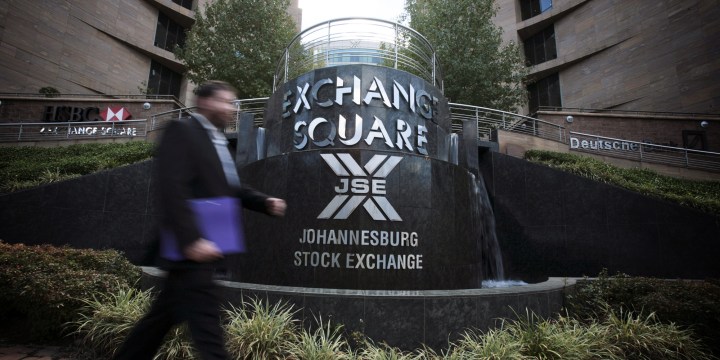BUSINESS MAVERICK
German property company Deutsche Konsum heads for the JSE

Deutsche Konsum REIT-AG, a German property company with real estate investment trust (REIT) status in Germany, will debut on the JSE’s main board on 8 March with a secondary listing. Not everyone is impressed.
Like Sirius Real Estate, Schroder Pan European, EPP, Hammerson and Globe Trade Centre, which all have secondary listings on the JSE, Deutsche Konsum REIT hopes to appeal to South African investors’ appetite for offshore property investments.
The company will list in the Retail REITs sector of the JSE under the abbreviated name DKR. With a market capitalisation of about €557-million, the company invests in convenience retail properties in micro-locations in the central and regional areas of Germany outside of major cities and is listed on the Frankfurt Stock Exchange.
The DKR real estate portfolio will consist of 165 convenience retail properties with a market value of about €829-million.
The company was formed by Rolf Elgeti, a former London-based analyst who saw an opportunity in German real estate and moved there in the early 2000s.
The investment focus across DKR is on non-cyclical retail tenants, such as food retailers, retail warehouse stores, drugstores and the like which provide “essential” services and goods to consumers.
“This has made the business resilient to the impact of the lockdowns in Germany,” Elgeti said.
DKR acts as a professional investor, as the investment value per property, generally up to €25-million, is in many instances too high for private investors or too low for institutional investors, thus occupying its own niche in the German property sector.
The company was initially attracted to South Africa by its deep capital markets, the understanding of the property space by the investor community and its well-regulated exchange.
“The company is not listing for the purposes of a capital raise, but we believe to introduce further liquidity into the share price,” says Ahmed Motara, a listed property analyst at Stanlib.
“The company trades minimal volume in Germany, in part due to investors probably buying and holding it on a very long-term view. Also, management has a large stake in the company as well, with the company free-float at only 41%.”
SA investors are hungry for niche, diverse opportunities to invest in, beyond SA retail, office and industrial exposure. In addition, while investors in collective investment schemes are spoilt for choice when it comes to offshore property investments, many institutional property funds in SA can only invest in property companies listed on SA stock exchanges.
“So it makes sense for DKR to list on the JSE, having assessed the appetite for their stock in SA,” says Motara.
However, apart from Syrius, whose share price has moved from R7.36 to R19.33 since its secondary listing in 2016, other secondary property listings leave much to be desired. Of these, the least interesting must be Eastern European-focused Global Trade Centre, which listed in 2016 at R25, is now R25.99 and barely trades.
“I don’t see why DKR is different to any of these listings,” says Garreth Elston, chief investment officer of Reitway Global’s suite of global listed property funds.
“All of these incoming listings say the same thing – they are here for SA’s savvy investors who understand property; because of SA’s deep capital markets and to add liquidity to the exchange.
“We have lost listings due to a wide range of factors and are replacing them with small companies that don’t add liquidity or any other value to the JSE.”
While DKR has performed well through the two German lockdowns, with most tenants managing to keep up with their rentals, there are factors that investors need to consider.
For one, the bulk of DKR’s exposure is in the former East Germany, rather than in the country’s economic heartland. “That’s not a big plus,” Elston says. “Property companies are affected by the cities they are in and the growth of the city.”
In addition, the stock has a higher than SA sector average loan-to-value ratio, adds Motara. It also has a higher than SA sector average price-to-book ratio, which suggests that investors must be willing to be long-term holders in what appears a defensive niche exposure.
“There will also be some appetite from individuals wanting to invest in a EUR income stream that will likely grow over time and want German property exposure,” he says.
Elston remains unconvinced.
“South African investors are a little too easily impressed by offshore listings. In a global universe does it really make sense to list in SA? We do hope that it succeeds and grows as Sirius did, but there are issues with the company: the asset class, the size of the company, the possible lack of liquidity and the limited free float.
“History has not been kind.” DM/BM



















Comments - Please login in order to comment.